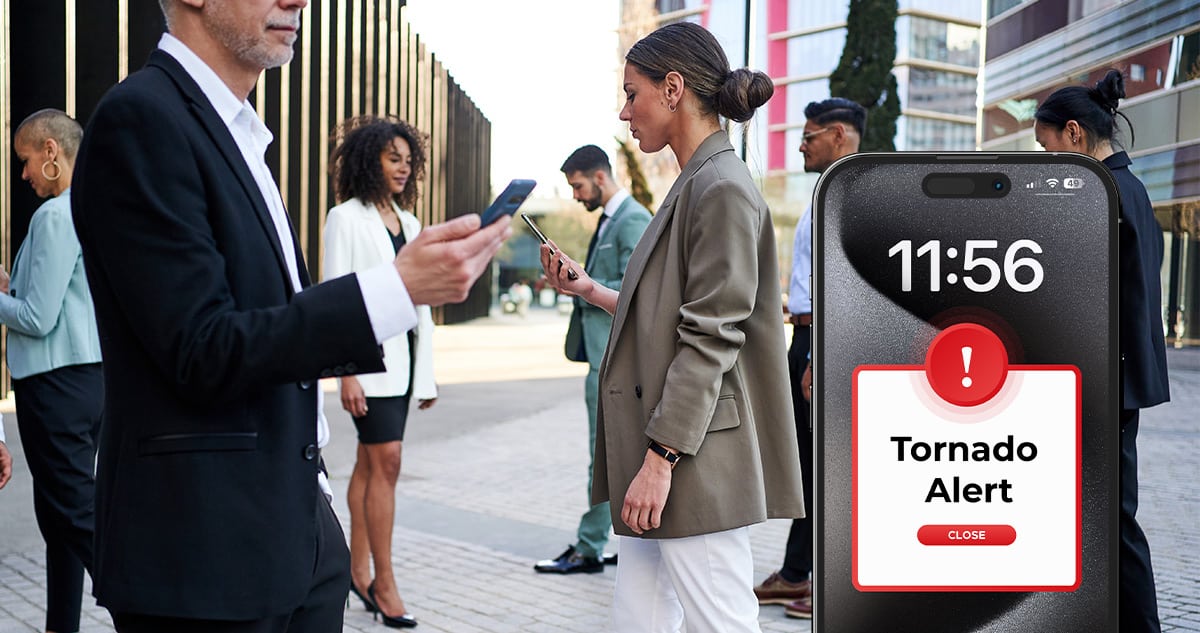In today’s world, where safety and security are paramount, mass notification systems (MNS) have become increasingly essential. These systems are crucial in alerting visitors and occupants of impending threats, ensuring that everyone in a hospital, school, or corporate campus is informed promptly and accurately. As we continue to face unpredictable natural disasters, increasing security threats, and other emergencies, the ability to communicate swiftly and effectively has never been more critical. Mass notification systems are not just tools for large organizations; they are lifesaving mechanisms that provide peace of mind and a structured response during chaotic situations. This article explores the importance, applications, and growing necessity of mass notification systems in various settings, highlighting how these systems are transforming the landscape of emergency preparedness and response. Whether you are responsible for a sprawling corporate complex or a small community center, understanding the capabilities and benefits of MNS can help you better protect those within your care.
What is a Mass Notification System?
A Mass Notification System quickly disseminates emergency messages to a large group of people. These systems can send alerts via multiple channels, including text messages, emails, voice calls, and public address systems, ensuring that everyone receives the message, regardless of their location within the facility.
The Importance of Mass Notification Systems
Mass notification systems are critical for several reasons:
1. Enhanced Safety: By providing real-time alerts about emergencies such as natural disasters, security threats, or other hazards, an MNS helps to protect lives and minimize injuries.
2. Compliance with Regulations: With organizations like the National Fire Protection Association (NFPA) requiring mass notification systems for certain building types, compliance is often a legal obligation and a crucial aspect of risk management.
3. Operational Continuity: During emergencies, quick communication can help maintain operational continuity by directing people to safety and providing instructions on protective actions.

Applications of Mass Notification Systems
Hospital Campuses
Hospitals are dynamic environments with patients, visitors, and staff spread across various buildings and floors. In the event of a tornado, a hospital’s mass notification system can instantly alert everyone in the facility and parking lot, ensuring that patients and staff move to designated safe areas and that visitors avoid entering dangerous zones.
School Campuses
The safety of students and staff is a top priority for educational institutions. Mass notification systems can quickly alert the entire campus about threats such as intruders. If a suspicious individual is on school grounds, the system can send an alert to initiate a lockdown, keeping students and staff secure until law enforcement arrives.
Corporate Offices
In corporate environments, mass notification systems are vital for ensuring the safety of employees and visitors. During a fire or chemical spill, an MNS can direct everyone to evacuate safely, minimizing panic and confusion. Additionally, these systems can communicate non-emergency information, such as weather-related closures or IT outages.
Technology Behind Mass Notification Systems
Mass notification systems rely on advanced technology to deliver messages swiftly and accurately. Key components include:
Central Control Panels: These panels allow administrators to create and send messages to different channels and groups.
Integration with Other Systems: Modern MNSs can integrate fire alarms, security systems, and building management systems to automate alerts.
Multi-Channel Delivery: To ensure the message reaches everyone, an MNS can send notifications via SMS, email, voice calls, and social media.

Compliance and Standards
The National Fire Protection Association (NFPA) has set guidelines for implementing mass notification systems in various facilities. According to NFPA 72 (National Fire Alarm and Signaling Code), certain building types, such as high-occupancy buildings, hospitals, and schools, must have a mass notification system. These standards ensure that MNSs are reliable, effective, and capable of reaching all occupants during an emergency. Compliance with these standards is often a legal requirement and a critical aspect of maintaining a safe environment. Failure to comply can result in significant penalties, increased liability, and compromised safety. Regular audits and inspections are often mandated to ensure that systems are up-to-date and functioning correctly. Additionally, training staff on these systems is vital to ensure quick and efficient response during emergencies. Staying informed about changes in regulations and standards is essential for facility managers to maintain compliance and enhance overall safety measures.
The Future of Mass Notification Systems
As technology evolves, mass notification systems are becoming more sophisticated. Future developments may include:
1. AI and Machine Learning: These technologies can analyze data to predict emergencies and automate responses, enhancing the effectiveness of an MNS.
2. IoT Integration: The Internet of Things (IoT) can connect various devices within a facility, allowing for more comprehensive monitoring and quicker alerts.
3. Enhanced Mobile Integration: As mobile devices become even more integral to our lives, MNSs will continue to improve their mobile capabilities, ensuring alerts are accessible on the go.
Mass notification systems are an essential component of modern safety and security strategies. By providing timely alerts and instructions, these systems help protect lives, maintain order, and ensure compliance with safety regulations. As technology continues to advance, the capabilities of mass notification systems will only improve, making our facilities safer and more secure.
At ABF Security, we are committed to providing top-notch security solutions, including state-of-the-art mass notification systems. Contact us today to learn how we can help safeguard your facility and ensure the safety of everyone within it.

